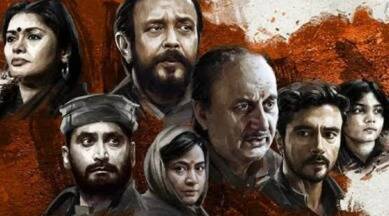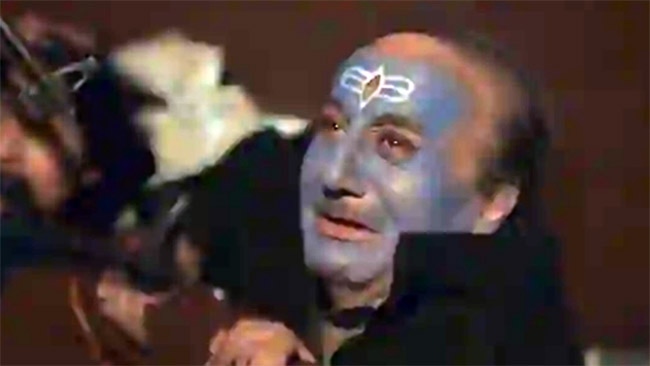‘Kashmir Files’ relives Kashmiri Pandits’ plight

By Neena Badhwar
The Kashmir Files, a movies just released worldwide, has been like an emotional volcano that has erupted among the Indian community all over, especially for the Hindus.
Where was this shameful episode hiding for the last 30 years; why was it swept under the carpet for so long; was it for political convenience, are there some leaders or some political parties to blame. Is it Hindu tolerance, or indifference to blame.
The similar despicable issues in the distant past or in recent times: the Spanish conquests into the Aztec Empire, the Belgian Emperor Leopold II killing between 4-14 million blacks (to compensate the slaves along Congo River!), the British, French and the Portuguese atrocities in Africa and Asia, the Jewish Holocaust, and in recent times in India – riots against the Sikhs in 1984 and 2002 Gujarat riots against the Muslim community are parallels. But these pernicious issue of en masse intolerance are never allowed to let die to serve as a reminder for the humankind to beware.
But not the killing and mass exodus of Kashmiri Pandits, some 450,000 of them! Why not?
The time was late 1989 and early 1990 during VP Singh’s government and when the Home Minister was Mufti Mohammed Sayeed when his daughter Rubaiya Sayeed was allegedly kidnapped. The time was the beginning of Kashmiri terrorism in India.
Sorry, I’ll halt here. I just could not stop myself from giving a political background as I was distressed and so moved after seeing the movie premier at Castle Hill when a lady told me that she actually experienced some of the scenes from the movie and being made into a refugee in ‘my own homeland’.
Stop also because the young lead actor from the movie I interviewed, Darshan Kumar, did not want to indulge in the politics of the time then and now.
The demand for screening Kashmir Files, directed by Vivek Ranjan Agnihotri (recently given a Y security due to death threats he’s receiving), increased in Australia from 15 screens to 55 in a matter of weeks. There was so much interest that the movie ran full halls.

After the show people came out crying, utterly disturbed by what was depicted. The two-hour-fifty-minute film showed how brutally they were treated that they had to run away leaving their homes, properties, businesses with nothing in hand, trying to save their family, their women and the children.
It was as if everyone in the valley had turned against them. Many of the people such as teachers, judges were targeted, shot, hung to create an atmosphere of fear among the rest. No one helped them, the government of the day, the media, the military or even the police.
Krishna Pandit in the movie lost all his family which was murdered brutally, first the father, then in the camp, his brother Shiva and mother Sharada.
The scenes of Sharda being shorn to pieces by a tree cutting saw is just too much for the audience. The Nadigram killings did happen, one Sydney Kashmiri gentleman said, shaking his head, “It’s all true”.
Krishna Pandit, a young student at the university, is confused as he does not know the history of his family, what happened to them. All he has is his old grandfather played by Anupam Kher who keeps on repeating the sad stories writing thousands of letters to the government asking for Article 370 to be revoked so that the Kashmiri Hindus can go back to their land of birth.
More from the actor himself:
TIDU: First of all, Congratulations for being part of the movie, ‘The Kashmir Files’. It is nearly thirty years too late. The Sydney show was a full house with people crying after the show. Zee has increased its screenings from 15 to 55, how do you feel?
DK: It is good to see that people have accepted the film as their own. They are keeping it to their heart. We are getting love from all over the world.
TIDU: The movie must have caused a life-changing experience for you as I saw you hugging people, consoling them as they came out of the halls. What do say to that?

DK: I can’t describe it in words. I can say it is a blessing that it is creating history. I feel really blessed. I remember my first meeting with Pallavi ji, when I saw the videos of the real victims. They shook me inside out. I couldn’t utter a word. And later when Vivek Sir gave me the script. While reading it I imagined and felt the same pain as I saw on those videos. Vivek Sir had depicted all those incidents so amply in the script and in the dialogues. I was spellbound with it. I felt strongly that I have to do this film. That the truth should come out. People should know brutal truth of Kashmir. I was so ashamed as a human being that I didn’t know anything about this. Now when people have seen the film, they are relating to the film, getting emotional, loving the film, they are hugging us, that we have worked hard and brought reality in front of them.
TIDU: What kind of preparation did you do for the role of Krishna Pandit. How involved were you in the process?
DK: I have done work in many films. My first film was Mary Com opposite Priyanka Chopra, with Anushka Sharma in NH 10, then in Sarbjit with Aishveryaa Rai. But I must say that this role was the most difficult one for me. With due respect to all other professions, I think acting is the most difficult job in the world. It requires your mental, emotional, physical strength because you have to stay under the skin of the character for a long time to create a celluloid magic. You can’t fake emotions. To prepare this role I had to use my imagination and live all those incidences which happened to Krishna Pandit, my character and his family. It was heart wrenching. It was very painful, I couldn’t sleep. It was for me quite a difficult role to handle.
TIDU: I felt that you were quite held back in your acting all the way through the film. A confused university student. Was it intentional or as suggested by the director. Did the narrative at the Uni, that was pushed on you as a student by Pallavi Joshi’s character as Professor Radhika Menon, leave a confusion in your mind? You were sort of holding back; only at the end you came out strong in your speech?
DK: I think we are all so confused with different different narratives. Before coming to any conclusion we think ten times, but still the reality does not come out. That is what was happening to young Krishna. His grandfather was a victim and telling Krishna different version whereas Radhika Menon, playing my professor at the Uni, was egging Krishna in another narrative and thus the direction. He is so confused. He is like today’s audience. It is only when he meets four long lost friends of his grandfather that the reality of Kashmir dawns on him. What actually happened there, the brutal truth, how people have been treated, not only stripped of their culture but existence as well. That’s why that charged monologue that I speak at the end.
TIDU: How was it for you to work with seasoned actors such as Anupam Kher, Pallavi Joshi and Mithun Da?

DK: It was a dream come true moment for me. I have grown up watching their films. They have always inspired me in many ways. They were like a family, eating together, sitting together, discussing scenes, various incidents that happened in 1990s, working on the scenes. It was quite a good learning experience for me with these living legends. I could perform all the scenes in my best way. I can’t describe the feeling.
TIDU: Reference to ‘The Kashmir Files‘ was not much excepting some newspaper clips in those files?
DK: Actually, this is a story about the horrible incidence to Krishna Pandit’s family. Half a million people had left the valley. In my opinion, those half a million people, each one of them have their own story to tell. People want realistic films these days.
TIDU: Stories of Kashmiri exodus are in Sydney too. People move on, yet, carry deep-seated wounds inside them. To relive, ‘Raliv, Chaliv, Galiv’ slogan by the kids, what do you have to say?
DK: I can’t say much: only that this film is hopefully going to unite everyone having opened the eyes of people of what actually happened there.
TIDU: Would you be considering to take part in the series on Kashmiri exodus if it is ever made. The Kashmir Files film is just not enough as people are curious to know more what exactly did happen there?
DK: I am always looking for good roles. You know that I have acted in other challenging roles.
TIDU: Role of Krishna Pandit in ‘Kashmir Files’ must have been hard for you to act? How, as an actor, do you get out of a painful character in the real world.
DK: It took 2-3 weeks to get out of the character. I had to emote in front of the camera. I resorted to meditation and watching some good content afterwards to get out of the character. For me, it was only a few weeks to get out but what actually happened to people over there, they are still carrying the pain in them.
TIDU: Do you think such films bring closure to all what happened to Kashmiri Hindus. The 1947 Indo-Pak partition stories are still echoing on people’s minds even after when so many books, novels and films have been written. Once a mob is incited, violence is bound to happen. What is your opinion?
DK: Yahi hua. Just imagine, they could not as they moved without joote, chappal. They were told to go without their women and children. Har taraf Raliv, Chaliv, Ghaliv ki awaazein aa rahi thi. They were made to live in camps where saanp, bicchus were there, no one to attend to them, or listen to them, banks were closed, no govt departments were working. In one of the tent at the camp there were twenty people living and had to abort their child because they had no money to afford bringing a new life to the world. Even now they regret having done that. Aaj bhi wo ro rahe the. Aaj bhi wo pain hai unke andar hai. Koi reports bhi nahi likhi gayi. Koi system kaam nahi kar raha tha. Police tak bhi nahi thi, ek bhi report tak nahi likhi gayi. Kashmiri panditon ne kabhi hathyaar tak nahi uthaye. Mai manta nahi ki ye insanniyat thi. Phir bhi unhone zero se start kiya. Kashmiri Hinduon ke saath saath bahut kuchh beeta. Unohone apne ko khada kiya. This is what we tried to show through this film.
TIDU: What would you like to say to Kashmiris settled in Sydney who became utterly emotional after seeing the film. Any hugs from you?
DK: As a human being, as Darshan, and as an actor, I want to say to my Kashmiri brothers and sisters, jo appke saaath hua, bahut sharminda hun. Is film ke zariye bahut bada message government tak pauncha hai. Dekhna, bahut jald wo time aayega jab Kashmir me Kashmiri Hindus wapas settle honge.
Short URL: https://indiandownunder.com.au/?p=17597
